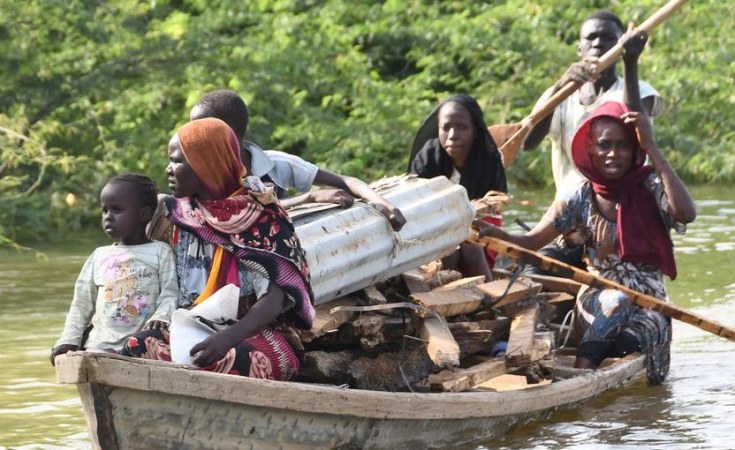Read in
Moise Amedje Peladai / UNHCR/A family that lost their home to the floods transports what remains of their house by dugout canoe in the Far North of Cameroon (file photo).
An international team of scientists believe severe flooding in Nigeria and surrounds was considerably worsened by climate change and believe the trend could continue.
A new study has found that heavy rain and flooding in the Lake Chad region, which killed more than 800 people this year, was 80 times likelier as a result of climate change.
A team of researchers from World Weather Attribution (WWA) — a thinktank which analyses extreme weather events — found that above average rainfall in the region, human-induced climate change, poor water management and human settlements situated closely to flood plains had devastating consequences.
Floods this year mainly hit Nigeria, Niger, Chad and neighboring countries, uprooting over 1.5 million people and laying waste to settlements and agricultural land.
Some of the key findings
While flooding occurred as a consequence of above average rainfall throughout the 2022 rainy season running from May to October, researchers concluded that climate change “made the event about 80 times more likely and approximately 20% more intense.”
“The influence of climate change means the prolonged rain that led to the floods is no longer a rare event,” the study found.
Researchers based their findings on historical records of weather data and climate models, running comparisons from past and present to determine the impact of warming temperatures on weather patterns.
Flooding was found to have been spurred on by the release of the Lagdo Dam in Cameroon, part of a river management system designed to work in tandem with a dam in Nigeria that is incomplete.
The impact of the floods was worsened by the close proximity of human settlements and farmland to flood plains.
‘Very intense rains’ expected in coming years
The WWA analysis was conducted by a team of scientists from Nigerian, Cameroon, India, the Netherlands, France, Denmark, South Africa, Sweden, the United States and the United Kingdom
The team of experts believe the trend is expected to continue in future.
“We will see very intense rains in the region in the coming years,” warned study lead and climatologist Friederike Otto of Imperial College London.
The scientists called for more investment in weather stations to help better understand future studies while also helping communities better prepare for extreme weather events.



